第513章
(19) Josephus is clear that these midwives were Egyptians, and not Israelites, as in our other copies: which is very probable, it being not easily to be supposed that Pharaoh could trust the Israelite midwives to execute so barbarous a command against their own nation.(Consult, therefore, and correct hence our ordinary copies, Exodus 1:15, 22.And, indeed, Josephus seems to have had much completer copies of the Pentateuch, or other authentic records now lost, about the birth and actions of Moses, than either our Hebrew, Samaritan, or Greek Bibles afford us, which enabled him to be so large and particular about him.
(20) Of this grandfather of Sesostris, Ramestes the Great, who slew the Israelite infants, and of the inscription on his obelisk, containing, in my opinion, one of the oldest records of mankind, see Essay on the Old Test.Append.p.139, 145, 147, 217-220.
(21) What Josephus here says of the beauty of Moses, that he was of a divine form, is very like what St.Stephen says of the same beauty; that Moses was beautiful in the sight of Acts 7:20.
(22) This history of Moses, as general of the Egyptians against the Ethiopians, is wholly omitted in our Bibles; but is thus by Irenaeus, from Josephus, and that soon after his own age: -"Josephus says, that when Moses was nourished in the palace, he was appointed general of the army against the Ethiopians, and conquered them, when he married that king's daughter; because, out of her affection for him, she delivered the city up to him."See the Fragments of Irenaeus.ap.edit.Grab.p.472.Nor perhaps did St.Stephen refer to any thing else when he said of Moses, before he was sent by God to the Israelites, that he was not only learned in all the wisdom of the Egyptians, but was also mighty in words and in deeds, Acts 7:22.
(23) Pliny speaks of these birds called ibes; and says, "The Egyptians invoked them against the serpents," Hist.Nat.B.X.
ch.28.Strabo speaks of this island Meroe, and these rivers Astapus and Astaboras, B.XVI.p.771, 786; and B XVII.p.82].
(24) This superstitious fear of discovering the name with four letters, which of late we have been used falsely to pronounce Jehovah, but seems to have been originally pronounced Jahoh, or Jao, is never, I think, heard of till this passage of Josephus;and this superstition, in not pronouncing that name, has continued among the Rabbinical Jews to this day (though whether the Samaritans and Caraites observed it so early, does not appear).Josephus also durst not set down the very words of the ten commandments, as we shall see hereafter, Antiq.B.III.ch.
5.sect.4, which superstitious silence I think has yet not been continued even by the Rabbins.It is, however, no doubt but both these cautious concealments were taught Josephus by the Pharisees, a body of men at once very wicked and very superstitious.
(25) Of this judicial hardening the hearts and blinding the eyes of wicked men, or infatuating them, as a just punishment for their other willful sins, to their own destruction, see the note on Antiq.B.VII.ch.9.sect.6.
(26) As to this winter or spring hail near Egypt and Judea, see the like on thunder and lightning there, in the note on Antiq.B.
VI.ch.5.sect.6.
(27) These large presents made to the Israelites, of vessels of and vessels of gold, and raiment, were, as Josephus truly calls them, gifts really given them; not lent them, as our English falsely renders them.They were spoils required, not of them, Genesis 15:14; Exodus 3:22; 11:2; Psalm 105:37,) as the same version falsely renders the Hebrew word Exodus 12:35, 36.God had ordered the Jews to demand these as their pay and reward, during their long and bitter slavery in Egypt, as atonements for the lives of the Egyptians, and as the condition of the Jews'
departure, and of the Egyptians' deliverance from these terrible judgments, which, had they not now ceased, they had soon been all dead men, as they themselves confess, ch.12.33.Nor was there any sense in borrowing or lending, when the Israelites were finally departing out of the land for ever.
(28) Why our Masorete copy so groundlessly abridges this account in Exodus 12:40, as to ascribe 430 years to the sole peregrination of the Israelites in Egypt, when it is clear even by that Masorete chronology elsewhere, as well as from the express text itself, in the Samaritan, Septuagint, and Josephus, that they sojourned in Egypt but half that time, - and that by consequence, the other half of their peregrination was in the land of Canaan, before they came into Egypt, - is hard to say.
See Essay on the Old Testament, p.62, 63.